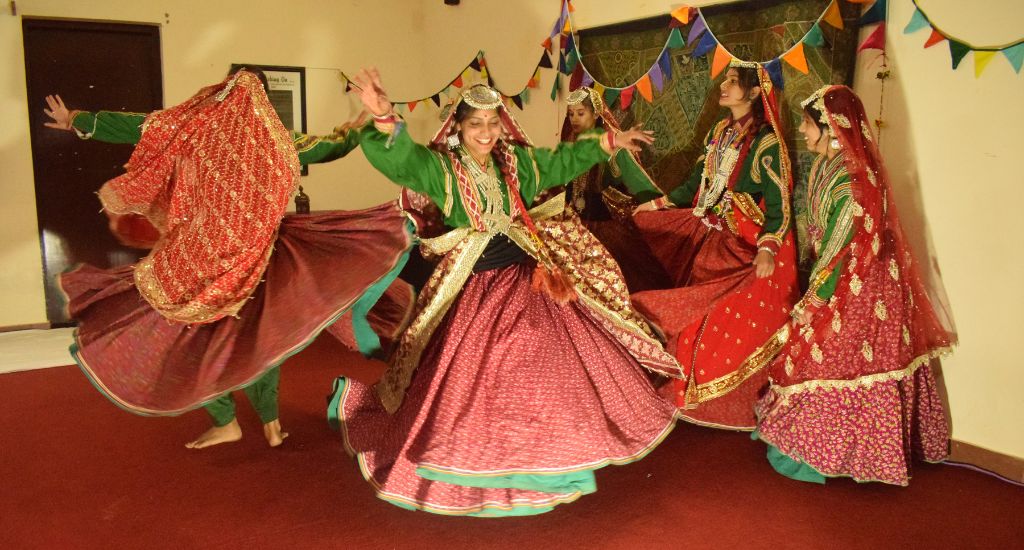Uttar Pradesh is one of the largest states of India and often comes in the news for all the wrong reasons. After working for about a decade in the development sector, when I was asked to develop rights-based programs in the state, I found out that the state has very limited history of large-scale mobilization around socio-economic rights of people.
Some recent mobilization around Dalit identity had happened, which helped them fight for their dignity. However, there is almost no history to fall back upon if you want to inspire women around socio-economic issues. If this is said out loud, people from development sector often show you the large number of self-help groups (SHGs) that NABARD (National Bank for Agriculture and Rural Development) has created in the state as an evidence of women’s collectivization.
It is sad to be given that example because SHGs that mainly operate as joint loaning group (JLGs) have not done much in terms of providing the benefits of collectivization to the participating women, almost anywhere. Vanangana and Nirantar groups that have worked in the Bundelkhand region with single-minded purpose of developing women’s leadership provide a breathing space. However, they are little known in the back alleys of eastern Uttar Pradesh.
Long commitment
I strongly believe that in order to sustain change in the community, one has to invest in leadership of people themselves and stand firm behind them for a reasonably long time. Social change does not happen overnight. It did not happen in our lives in a short span of time, it would probably not happen in their lives too. It is, therefore, important to recognise the need of investing in leadership building through collective empowerment in rural areas in order to sustain the process of change in rural Uttar Pradesh. Between 2007-2013, I supported women’s group formation in eastern Uttar Pradesh to secure entitlements around subsidized food and 100 days’ work and I would draw on that experience.
Leadership that stems from empowerment is often a journey that needs to be sustained over years. During a visit around 2009 to Maharajganj, a district near Nepal border, women spoke about domestic violence. “The men beat us up at home almost every evening. They say they feed us and therefore they can beat us too. Is there no recourse for us? Can we do nothing?” many of them said. Some women said they should not make a fuss about a slap or two when they are late in serving food.
We digressed from the main agenda of the meeting and discussed the legal recourse that day in detail. I got to know later that the NGO functionaries around were also listening intently. Two years later in Ambedkar Nagar district, the organisation started legal camps in the villages with the help of District Legal Cells (DALSA). The proximity of judges gave new hope to the womenfolk of the villages and they heard again and again how there was no legal sanction of wife-beating under Indian law.
Of course, the collectivization of women has its benefits. I remember a woman say, “The other day I asked my husband when he came back drunk and started a mini-storm at home, would he like to think twice before raising his hand on me? Will he think first how many he wants to get a beating from? If I raise my voice a little, at least 25 (women) will rush and if I raise it a little more, 50 would easily turn up. He knew I am serious about raising my voice. I will not keep quiet anymore and he also knew at least 50 women would indeed turn up and resist, if not more. He stopped! I know he cannot raise his hands on me anymore. These sisters are there.”
She then added in a pensive voice, “He still drinks. However, he does not dare to raise his hands on me.” The job is then to go back and find out if the lady who had asked the original question has also found out the answer? These legal camps were organized in many districts later. Ghazipur, Varanasi and Maharajganj were the prominent ones.
Memories of a song
Thoughts around empowerment always bring me to a song that women of a village near Faizabad sang. They created a song that said “jelkhane se chhutne ki khwaish nahi/ jailkhana jalane ka wada karo!” (We do not want to just get out of these prisons, promise that you would burn them with us). I asked them at the end of the song, why did they say that? They explained in clear terms that they think it is important to break the structure that keeps them bound and if they do not make that effort to break it once and for all, their daughters and daughters in law will have to work towards the small little things they struggled for, all over again.
They would have to negotiate going out of the house, to be part of a meeting, to go for a training camp and spend the night there with fellow women, to visit an urban area and to raise one’s voice. The woman who was explaining the song to me said that they do not want women to start all over again. This explanation really made me proud of the achievements even more.
This is so because Si Kahn, Executive Director of Grassroots Leadership, a non-profit, once wrote, “People and communities may win on the issues but that does not necessarily mean they develop new understandings of how and why they won, of power and how it is exercised, of difference and how it is exploited. They may experience the power of numbers but not necessarily the concurrent power of knowledge, of understanding.”
These women showed their analytical ability to assess their situation beyond what they had achieved. They thought about sustaining what they had achieved. The connection was made clearer by another woman in her sixties from Kallipur village of Varanasi. She wrote, “Chamkal ba na… dekho sab ki pardhaniya.” (See, how everyone’s leadership is shining!). “Pardhani chamkana” or showing one is a leader was often used as a sarcastic word against the women as they started coming out of homes and started taking up issues in public life. She turned the issue on its head as she talked about the collective leadership of women in her songs.
Heartening experience
As women in these areas could sustain the change through the practice of critical thinking, they easily absorbed other roles such as Swasthya Sakhi (good health friends) and Panchayat leaders later on. They proved my prophecy wrong when I thought they would not get votes in the local governance elections. Almost 80% of them won elections in local levels. It was a heartening experience to work with women of few letters in Uttar Pradesh. They were powerful in their conviction and remained so in the face of difficulties.
On empowerment, one also often hears how it is a personal experience. One hears how self-empowerment is the real empowerment, which is aided by knowledge. However, I want to distinguish between the knowledge and the use of knowledge, that is, practice. Evidence of the empowerment is in practice.
Years of working in the rural areas among the disadvantageous communities taught me that empowerment of rural women from disadvantageous communities lies in the power of collectives with the increase in knowledge base and development of critical thinking, which was clearly shown by the women of the collectives in eastern Uttar Pradesh.
Standing firmly
Experience in the rural areas shows that if voluntary organizations stand firmly behind the leadership of the actors themselves, women and children often lead their way to social change with much conviction. Many a time, however, organizations fail to match the footsteps with these empowered women due to funding compulsions. In order to avoid a situation wherein the people on the ground do not feel left out, it is important that the organizations that support them include their leadership within the organization too. This is not an ingenious suggestion because this is done by quite a few organizations including ANANDI in Gujarat and Vanangana in Uttar Pradesh. This, however, needs to be done in all the organizations that are looking for sustainable changes.
Experience shows, if supported, women’s collectives can go a long way in sustainably changing the socio-economic condition of the villages for the better in all parts of India. They often do not limit themselves to the issues selected by the NGOs working with them but go much beyond in the path of change. It is this enthusiasm and belief in change among the rural, disadvantaged population that keeps me deeply interested in the work in rural areas.
Nayana Chowdhury is Program Manager at IKEA Foundation. She started her career with a grassroots organisation that supports people’s movements to secure basic human rights and entitlements in rural and tribal areas of India. Chowdhury also had a long stint with the Tata Trusts. She has a Master’s degree in Social Work from the University of Delhi. The views expressed in the article are personal.


